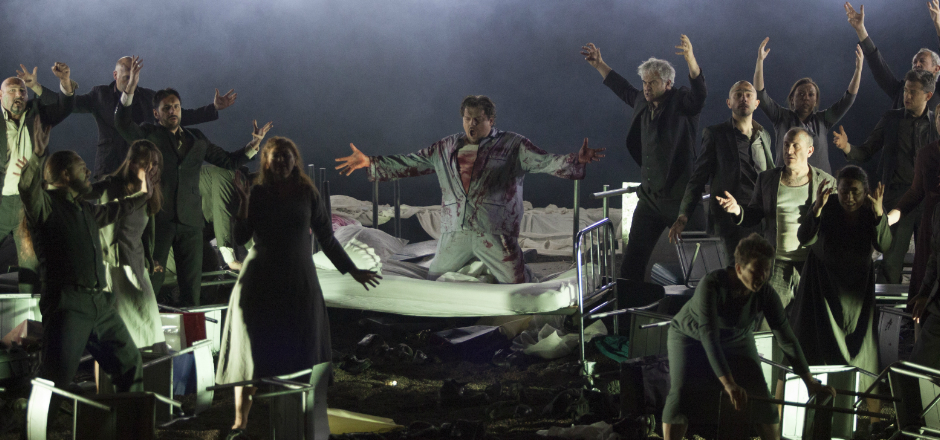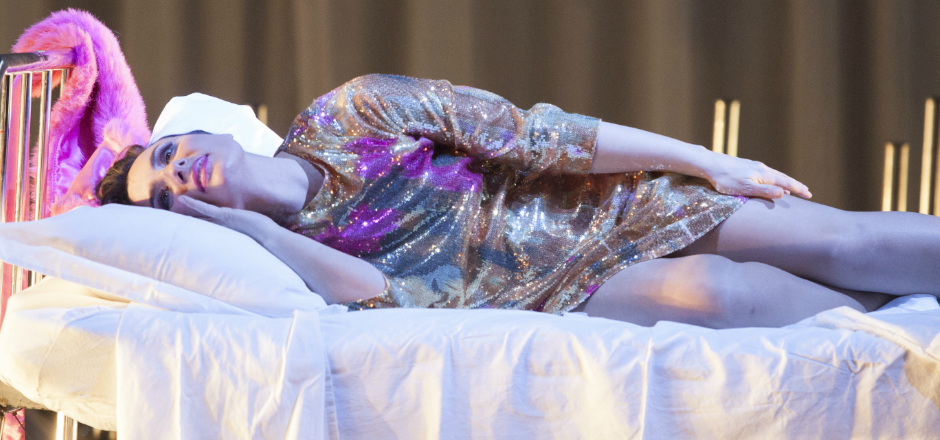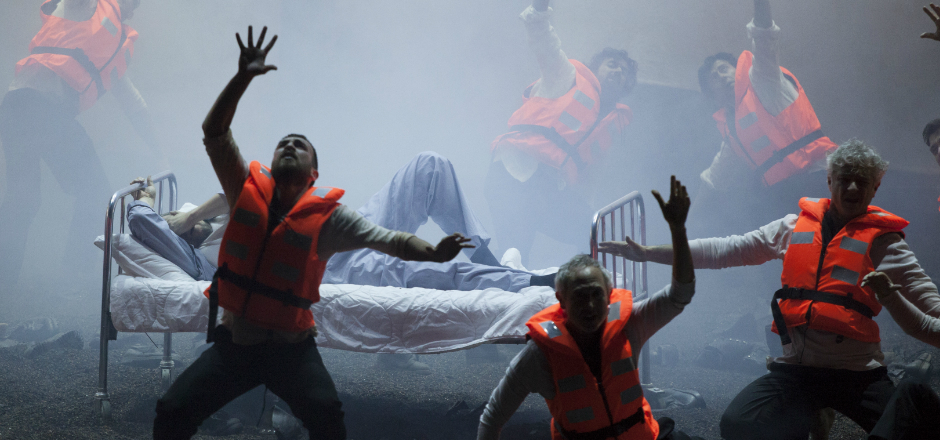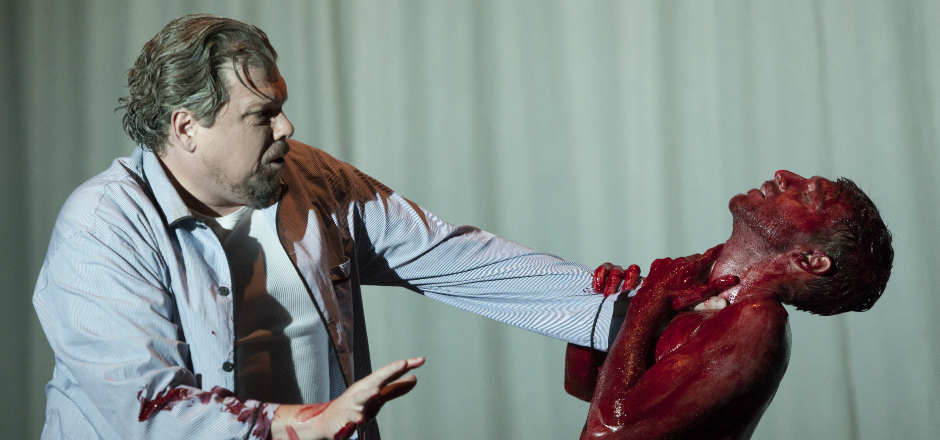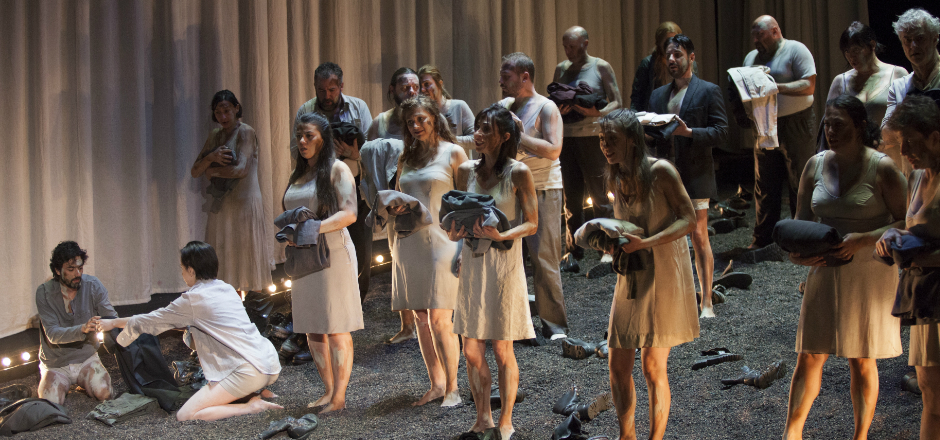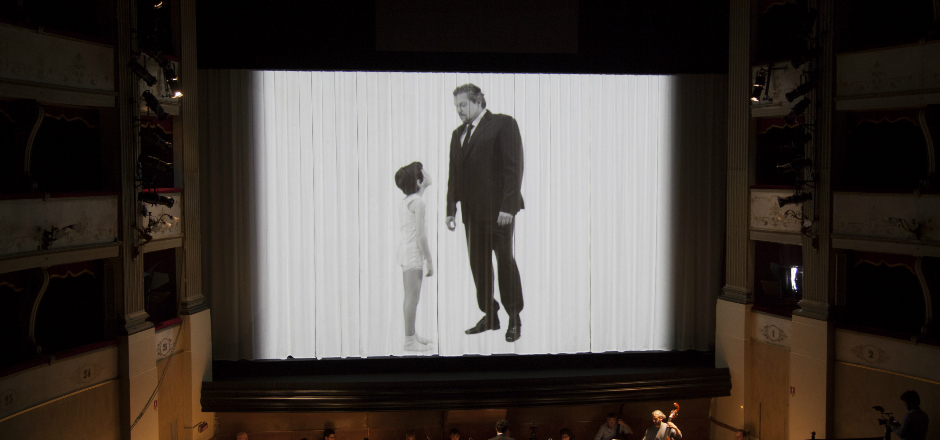80° Maggio Musicale Fiorentino
Opera
Idomeneo
Wolfgang Amadeus Mozart
Idomeneo (Idomeneo re di Creta)
An Opera Seria in three acts
Music by Wolfgang Amadeus Mozart
Libretto by Giambattista Varesco inspired by Idoménée by Antoine Danchet
First performance: 29 January 1781 at the Cuvilliés Theatre in Munich.
Staging by the Theater an der Wien
Artists
Conductors
Gianluca Capuano
Director
Damiano Michieletto
Scenes
Paolo Fantin
Costumes
Carla Teti
Light design
Alessandro Carletti
Video design
Rocafilm
Choir director
Lorenzo Fratini
Orchestra and Choir of the Maggio Musicale Fiorentino
Gianluca Capuano
Director
Damiano Michieletto
Scenes
Paolo Fantin
Costumes
Carla Teti
Light design
Alessandro Carletti
Video design
Rocafilm
Choir director
Lorenzo Fratini
Orchestra and Choir of the Maggio Musicale Fiorentino
Idomeneo
Michael Schade
Idamante
Rachel Kelly
Ilia
Ekaterina Sadovnikova
Elettra
Carmela Remigio
Arbace
Leonardo Cortellazzi
Il gran sacerdote di Nettuno
Mirko Guadagnini
Michael Schade
Idamante
Rachel Kelly
Ilia
Ekaterina Sadovnikova
Elettra
Carmela Remigio
Arbace
Leonardo Cortellazzi
Il gran sacerdote di Nettuno
Mirko Guadagnini
After the fall of Troy, Idomeneus, King of Crete, is going back to his homeland and his son Idamantes, when his fleet is seized by a storm. Agamennon’s daughter, Electra, after her mother Clytemnestra’s murder, has taken shelter in Crete where she has fallen in love with Idamantes, who instead loves Ilia, daughter of Priam, king of Troy; Ilia has been sent to Crete by Idomeneus as a prisoner. She appears in the beginning of the opera being torn between her love for an enemy and her Trojan Princess’ honour. Idamantes, in the hope that his father will arrive soon, sets the Trojan prisoners free and declares his love to Ilia; the girl refuses him despite the violence she does to her feeling. The prisoners’ freeing upsets Electra, who accuses Idamante of protecting the enemies and of outraging this way the whole of Greece. In the meantime Arbaces carries the false news that Idomeneus might be drowned during a shipwreck: Idamantes withdraws, being grief-stricken and Electra gives free play to her jealousy, thinking that the young man, who has just become king, will certainly marry Ilia. Idomeneus finally succeeds in reaching Crete, but, during the storm, in order to calm Neptune’s anger, he has vowed to offer up in sacrifice the first human being he will meet on land: once he is safe, distressed, he thinks again about his terrible vow. A young man appears and Idomeneus discovers with horror that it is Idamantes. The King flees in dispair, forbidding his son to follow him, whereas the young man, who does not know anything about the vow, expresses his deep amazement for his father’s behaviour. In the meantime the Cretan warriors praise Neptune for taking them back safe to their homeland.
Act II.
In order to escape the vow and to save his son, Idomeneus decides to keep Idamantes away, by sending him to Argos with Electra, where she shall be enthroned. Ilia congratulates Idomeneus for his return and glorifies Idamantes’ magnanimity for giving freedom back to her: the king, by realising the feeling of love that ties the two young people, becomes even more anguished. Electra also thanks Idomeneus for his decision and expresses her joy: it will be easier for her to conquer Idamantes’ heart once he is away from Ilia. Everything is ready for departure but, as Idomeneus takes leave of his son and Electra, another dreadful storm rises and a sea monster emerges from the waves. Idomeneus realizes he is the cause of Neptune’s rage and offers himself up in sacrifice.
Act III.
Ilia commits to the winds her message of love for Idamantes. He arrives declaring his decision of risking his life by fighting the monster. The young woman - in order to dissuade him from his purpose - confesses her love to him and finally they can both express their joy. Idomeneus and Electra enter and the king - in order to prevent Idamantes from death - once again orders his son to leave Crete; then the High Priest, followed by the people, appears to ask Idomeneus to liberate the Cretans from the monster: he urges him to fulfil the vow and to reveal the name of the victim. Idomeneus pronounces Idamantes’ name, being horrified by the idea of having to sacrify his son. The sacrifice begins when cries of victory can be heard and Arbaces announces that Idamantes has slain the monster. The Prince, realising his father’s attempts to save his life, declares that he is ready to die, but, as Idomeneus is about to hit him, Ilia offers herself as victim in place of her beloved. The voice of the oracle of Neptune is suddenly heard: in order to placate the god’s rage, Idomeneus must renounce the throne in favour of Idamantes who will marry Ilia. Electra, fallen a prey to fury, flees. Idomeneus, full of joy, thanks the gods whereas Idamantes is crowned amongst choirs and dance.
Places on the bus are subject to availability and cost 10€ per person for a round trip journey.
Subscribers to the Maggio Musicale Fiorentino Festival can book in advance from Friday 31st March.
Booking for the general public will be open from Thursday 6th April.
Tickets can be purchased from the Opera di Firenze box office (from Tuesday to Friday, 10 am-6 pm; Saturday 10 am-1 pm).
Departure times from Piazza Vittorio Veneto
(Opera di Firenze side):
Wednesday 26th April, 6.15 pm
Sunday 30th April, 1.45 pm
Wednesday 3rd May, 6.15 pm
Saturday 6th May, 6.15 pm
